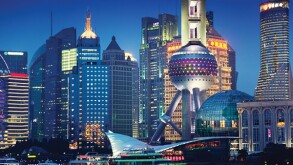The Court of Justice of the EU was ruling in a case referred to it by the German Federal Patents Court.
The country’s Patent and Trade Mark Office had been asked to register an international mark filed by Apple representing the layout of its flagship retail stores. The Office declined, arguing that the depiction of the space devoted to the sale of Apple’s goods simply constituted a representation of an essential aspect of its business and that consumers would not see it as an indication of the commercial origin of the goods.
Apple appealed, and the German court asked the CJEU whether the representation of the layout of a retail store, by a design alone, without any indication of size or proportions, may be registered as a trade mark for services aimed at inducing the consumer to purchase the goods of the applicant for registration and, if so, whether such a “presentation of the establishment in which a service is provided” may be treated in the same way as “packaging”.
Today the Court reconfirmed that trade marks must constitute a sign; be capable of graphic representation; and be capable of distinguishing the goods or services of one undertaking from those of other undertakings.
It went on to say that it cannot be ruled out that the layout of a retail outlet may allow customers to identify goods or services as originating from a particular undertaking.
“As the French Government and the Commission have submitted, this could be the case when the depicted layout departs significantly from the norm or customs of the economic sector concerned,” said the Court.
But the judges went on to emphasise that signs that can constitute a mark do not necessarily possess a “distinctive character” within the meaning of European trade mark law. National courts need to assess whether they have distinctive character by considering the goods or services in question and the perception of the relevant public. They also need to make a case-by-case assessment that considers whether the sign is descriptive or whether there are any other valid grounds for refusal.
The Court also ruled that if the sign can be registered for goods, it can also be registered for services, as long as they do not form an integral part of the offer for sale of those goods. In the case of Apple’s application, services such as holding seminars to demonstrate the products as a way of encouraging people to buy them may constitute remunerated services falling within the concept of “service”.
You can read more about the background to the case, and ways of protecting store designs, on Managing IP.









